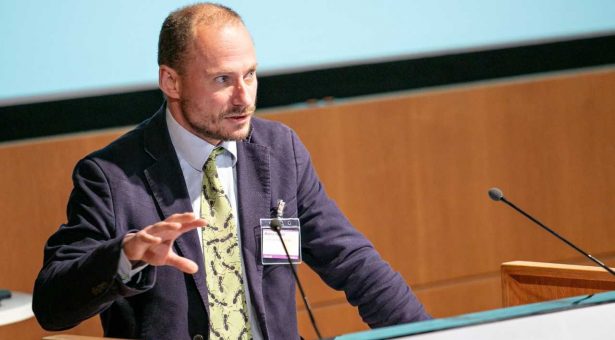CASE placement at Syngenta proves a positive experience for Marco

Marco Fioratti, a student based at the John Innes Centre, undertook his CASE placement with his industrial partner, Syngenta, February to April 2020. Marco’s PhD is researching cover crops and below-ground biodiversity, investigating an ecological approach to measuring soil health. During Marco’s placement he hoped to be able to use Syngenta’s state-of-the-art facilities and expertise at Jealott’s Hill to carry out a soil column experiment, while also becoming familiar with the internal structure and logistics of a private research facility. Despite the impact of the COVID pandemic, Marco managed to realise both objectives.
During the placement Marco’s duties consisted of setting up and monitoring his experiment after securing the required permission to work safely on the site of the Syngenta research centre and gaining access to all the necessary facilities and expertise. While formal training opportunities were substantially curtailed due to the ongoing COVID pandemic, Marco did benefit from a large amount of formal induction facilities, allowing him to experience the differences in health and safety procedures, as well as in general logistics and organization, between a public and a private research institute.
Unfortunately, the national lockdown intervened half way through Marco’s placement and disrupted a substantial amount of the planned activities. Nevertheless, he managed to complete his experiment, collecting at least a part of the data he was hoping to produce. In addition to the data collection, the main benefit of the placement for Marco was observing the masterful planning and logistics that allowed the research centre to stay open and productive during the national lockdown, while maintaining high safety standards and complying with government regulations.
Marco benefited from developing many skills and learnt a great deal during his placement. Marco was given extensive training during his Induction, covering a range of topics spanning health and safety and ethics. The need to set up and run an experiment in a limited timeframe in a completely new environment and during a national emergency seriously challenged his adaptation skills, and creativity was required to overcome limitations in the availability of materials and laboratory space during the lockdown. Marco found the first weeks of the placement very hectic, but they improved his confidence in his capabilities of adaptation to new work environments.
Although the opportunity for team working was severely curtailed due to the restrictions imposed by the pandemic, Marco did get the chance to showcase the results of his research by giving a talk at the annual research meeting organized by Syngenta.
Marco advises future CASE students to recognise that prior to working in a new environment, if experimental or analytical work is to be carried out, it is important that the student thoroughly enquires about existing facilities, without taking anything for granted. “More intense scrutiny on my part in the months leading to the start of my placement would have made my initial weeks easier and less hectic!”, reflects Marco.
Overall, Marco is very enthusiastic about his placement saying “I think industrial placements should be an essential part of PhD programs. Working in academia often confines students to a sanitised, albeit intellectually stimulating, bubble, with a high level of educational and social homogeneity”. He continues “Even if I had extensive experience in the private sector before starting my PhD, it was refreshing to be immersed in a different work environment and interact with people with diverse backgrounds and worldviews”.
